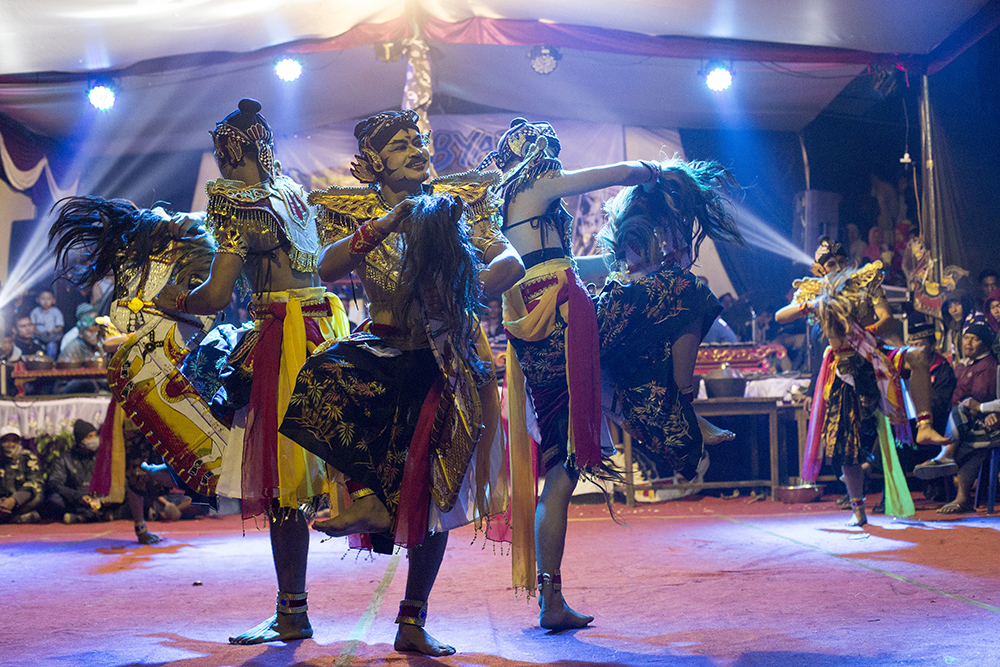
WONOTIRTO, INDONESIA, July 29, 2019 (RNS) Across this majority-Muslim country, the end of Ramadan is an occasion for celebration. But in this small village in Central Java, it is also an auspicious time to honor one’s ancestors in a festival called Haul. As is often the case in Javanese culture, the celebration is a mixture of Islam, Hinduism and animist traditions. Haul honors all the village ancestors, as well as Kyai Iriq, who founded the Wonotirto community hundreds of years ago. The ancestral spirits are invited to the Haul celebration through a dance called the Jaran Kepang (Kuda Lumping, Kuda Kepang or Jathilan in other regions). Jaran Kepang dances re-enact the great deeds of local ancestors with the dancers sometimes entering trances during the performance, their bodies believed to be temporarily inhabited by ancestral spirits.
The Jaran Kepang is an ancient ritual dance in which dancers ride painted horses made from woven bamboo. Its origins can be traced back to the Hindu communities in Bali and a ritual named Sang Hyang, during which the people were possessed by spirits. “Along with the spread of Hinduism to Java, the Sang Hyang evolved to become part of the Javanese traditions,” explained Santino Kuswarsantyo, who studies Jaran Kepang at an arts institute in Yogyakarta. The dance is popular in Java and Bali and several regions of Malaysia, where it was brought by Javanese settlers. In Malaysia it is now forbidden by the Shariah law in its ritual form. Malaysians still perform the spiritual version in underground celebrations, but those are quickly disappearing.
Colorful photos and a wonderful short video at “source” above.
